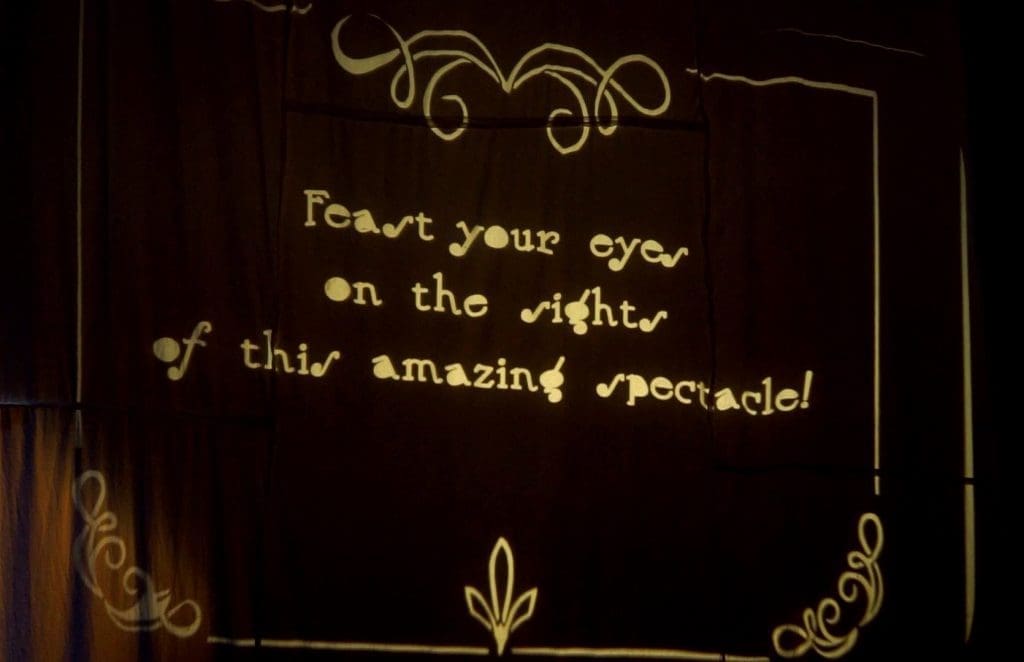Transcribed from the 1 October episode of This is Hell! Radio (Chicago) and printed with permission. Edited for space and readability. Listen to the whole interview:
This extreme unbridled individualism that haunts and shapes the country is one of the foundations for authoritarianism, because it not only mobilizes itself around fear, demonization, and hatred, but it drives people into symbolic communities that have nothing to do with the problems that they’re facing.
Chuck Mertz: American authoritarianism didn’t start with Donald Trump ascending to the presidency. It wasn’t caused by reality TV and our celebrity culture. It was caused by a culture of forgetting, refusing to take responsibility, by an economic system that is cruel and brutal and uncaring and selfish.
Here to help us understand what authoritarianism means in the era of Trump, and how we can fight it (if it’s not too late), Henry A. Giroux is author of the new book The Public in Peril: Trump and the Menace of American Authoritarianism. Welcome back to This is Hell!, Henry.
Henry Giroux: Hi, Chuck, good to be on the show.
CM: Always good to hear your voice, sir.
To what degree do you think the US is committed to democracy? After all, there was voter suppression that many think led to Trump’s election and an unfair advantage for Republicans, and there were voters in New York City complaining during the Democratic primary that they did not have the typical access to voting they had experienced in the past. So to what degree is either party truly committed to democracy?
HG: I don’t think either party is very committed to democracy. Right from the beginning with the trilateral commission, the people who framed the constitution—I mean, democracy gets in the way. It’s messy. It seems to suggest that people should have power over their lives and over commanding institutions that shape their everyday existence. That’s complete anathema to ruling elites on both sides of the political spectrum.
The only difference between the Democrats and the Republicans is that the Republicans are so extremist and crazy and ruthless and cruel that they don’t use code anymore to hide their anti-democratic tendencies or their disdain for people in general—except the ultra-rich—whereas the Democrats will talk about some elements of the social contract to suggest that they are on the side of justice. But it’s a form of justice that in the end really doesn’t serve the people.
Remember that since the 1980s, we’ve had a discourse that seems to suggest that matters of community, solidarity, justice, and freedom are basically irrelevant, and that the real issues that matter are issues of self-interest, deregulation, and privatization. We’ve killed the language of democracy under this form of casino capitalism, market fundamentalism, neoliberalism—whatever you want to name it—that’s exacerbated every other form of repression that we could talk about, whether that’s racism or sexism or gay rights. Basically we lost the language of community. We lost the language of democracy. It was disparaged, just as we’ve lost the language of solidarity.
We hear the president of the United States chastising the mayor of San Juan because she is saying people are dying—and not only does he chastise her and personally insult her, but also says you can’t expect too much from government. Bingo. There it is: the government is not responsible for people’s lives, you’re responsible for your own life, and if you’re in trouble, too bad.
I somewhat disagree with something you said earlier about celebrity culture. Politics follows culture, as Václav Havel used to say. We have to ask ourselves what is going on in the culture that makes people illiterate. What’s going on in the culture that allows people to elect a pathological liar? What’s going on in a culture in which fear becomes more important than shared responsibility? What’s going on in the culture when schools are utterly degraded, defunded, and turned into work stations for Google? When we begin to look at all of this, we begin to understand that people don’t have the language, they can’t make the connections, and it’s very difficult for them to understand how to position themselves in the face of a whole range of oppressions that bear down on them.
Yeah, there’s a minority of people who believe in democracy. Young people, in many cases, believe in democracy. There are people operating around single-issue movements who believe in democracy. But that’s a minority. For the most part, the language of democracy is under enormous attack, and there’s a very dark pessimism that haunts the United States around liberal democracy now.
CM: There are two things I wanted to touch on there. We’ll get to the culture aspect of it in a second. But you write, “Not only is the public in peril and on the brink of collapse as the economic, political, and cultural institutions necessary for democracy to survive are being aggressively undermined. As these institutions vanish, from public schools to health care centers, there is also a serious erosion of the discourses of community, justice, equality, public values, and the common good.”
To what degree are these institutions under attack because the public doesn’t realize how much these institutions are necessary for democracy? It always seems that people will say they believe in democracy, but then are opposed to the institutions necessary for democracy. What explains that disconnect? Why aren’t these institutions valued more by the public?
HG: That’s a terrific question. There’s a terrific tension in the United States between democratic values and commercial values. People have bought the Kool-Aid that commercial values are more important than democratic values. Hence there’s a misunderstanding of both these institutions and how valuable they are to democracy itself, as well as a presupposition that because they have some relationship to government around questions of care, around questions of the social contract, that somehow they promote a bad form of dependency and are therefore poisonous to civil society. That’s where the extremists have won. They’ve taken a notion of freedom, and they’ve defined it as the freedom to pollute, the freedom to defund public institutions, the freedom to attack unions, and the freedom to do away with the commons.
Since people believe this stuff, they can’t translate what it means to talk about private troubles and how they’re linked to systemic issues, and how we need institutions that are able to address those systemic issues and not simply argue that the problems that people face are individual problems. This extreme unbridled individualism that haunts and shapes the country is one of the foundations for authoritarianism, because it not only mobilizes itself around fear, demonization, and hatred, but it drives people into symbolic communities that have nothing to do with the problems that they’re facing.
Ideas matter. But they don’t matter enough, if we don’t have the institutions to propagate them. If we don’t have schools, if we don’t have public goods, if we don’t have public spheres, if we don’t have places where dialogue can take place and people can come together and question and read and understand and analyze, those ideas begin to evaporate. And in a country like the United States, where most of the cultural institutions and pedagogical institutions, from schools to the media, are dominated by a corporate elite, these are not public spheres in the best sense anymore. These are often toxic spheres that align themselves with market-driven values that promote enormous amounts of mass suffering and cultivate an ideology in which people don’t know how to deal with democracy and what its demands and responsibilities might look like.
CM: You mentioned individualism. There’s this inconsistency in hyper individualism that I don’t understand and I hope you can explain to me. There’s this idea that it’s your fault—it’s not the system’s fault, everything is your fault—that’s embraced by the right. But at the same time, the right says, “No, it’s not my fault, it’s their fault. It’s the Mexicans’ fault for taking my job. It’s the Muslims’ fault. It’s black people’s fault.” Can you explain this inconsistency in individualism?
What we’re looking at is, in my estimation, one of the most dreadful elements of the new authoritarianism: a politics of disposability. More and more groups are considered disposable. They’re excess. They get in the way of rich people getting even richer.
HG: Let’s be realistic. When they talk about individualism, they’re really talking about individualism for white people. It’s part of a logic that appeals to what they consider to be their base, meaning that they want to convince the American people that government is a terrible thing, and hence they’ve latched onto a relationship, a trafficking between individualism and freedom, that seems to suggest that the only way that freedom can be attained is to presuppose that everybody is responsible for all of the issues that they face.
Therefore it’s freedom from interference: freedom from government; freedom from those racial hordes that threaten our jobs; freedom from black people, who basically exist in a criminal culture; freedom from Syrians, who are all terrorists; freedom from Muslims, who are going to blow up the United States any day now. We have to understand this notion of individualism as a notion of freedom that’s a freedom from, which at the same time rests on the false assumption that there are no systemic problems.
Problems are individual problems, and can only be solved by people who bear a sense of responsibility for the situations that they find themselves in, and that’s it. Everybody is your enemy except people who allegedly have “made it,” because clearly they assumed the notions of individual responsibility, and that’s laudable.
CM: Earlier I was saying that authoritarianism didn’t start with reality TV and celebrity culture, in reference to what you write: “Donald Trump’s election is the endpoint of an assault on public goods, community, and civic literacy that has been going on since the 1970s. Americans have lived through an ideological assault by the corporate and financial elite, who have successfully inundated society with a hatred of community and unchecked celebration of greed, self interest, and a deep disdain for public morality. Ayn Rand’s glorification of the self, hatred of altruism, and the notion that compassion is a morality for the immoral supports not only a failed sociality and failed state, but also a social order that gives birth to monsters.”
So how much is president Donald Trump the inevitable outcome of the Republican Party project that began with the rise of Ronald Reagan in the late seventies? Did Reaganism set the stage for Trumpism?
HG: That is some question. Are you kidding? That was the beginning of a counterrevolution. That was a counterrevolution against every public good that is essential to a democratic society. Remember, one of the things that Reagan was immediately appalled by when he became governor was the fact that students were protesting at the University of California. He said right off that there was no way the government should support institutions that allowed this kind of critique to take place. In many ways, that burst of democracy in the sixties was like a tsunami for the right. They never really got over it.
What we’ve seen since the 1980s is a systemic evolution in a whole range of areas, from policy to the production of public intellectuals to the production of all kinds of institutions and resources that are now aimed at doing everything that is possible to isolate people, to atomize people, to lead them to believe that criticism is basically anti-American, and to promote a sense of conformity. At the same time we’ve seen the collapse of the social state coupled with the rise of a punishing state, a police state that has almost done democracy in.
The language of Trump is the language of fear. It’s the language of Lee Atwater. It’s the language of racism. It’s the language of demonization. It’s the language of fascism. People shouldn’t be surprised by Trump, because we’ve been hearing this for a long time. The only difference between Trump and these rightwing extremists, particularly in the Republican party, is that Trump is just honest about it. As Jeffrey Sinclair said recently, he just pulled the shroud away. He said, no apologies, sorry. I’m a racist. No apologies. Mexicans are rapists, sorry. I’m going to do everything I can to make sure the rich get richer, and if there are disasters like in Puerto Rico, I believe in the politics of disposability. Take care of yourself. No problem. If you criticize me, I’ll just say you’re stupid and un-American.
We see this working out in a whole range of spheres, everything from professional sports to Puerto Rico. What we’re looking at is, in my estimation, one of the most dreadful elements of the new authoritarianism: a politics of disposability. More and more groups are considered disposable. They’re excess. They get in the way of rich people getting even richer. And they serve a purpose: they become the basis for Trump being able to mobilize and speak in the language of fear and demonization, because that’s the only language left. That and the language of militarization, war, and violence are the only language left that’s capable of unifying people in the United States, it seems to me.
He’s the endpoint. He’s the Frankenstein monster. All the parts that were developed in the last fifty years—all of the parts were there, but they were finally put together with Trump.
CM: Why are celebrity culture, reality TV, and social media seemingly so much more conducive to authoritarianism than to peace love and understanding? Why are they so conducive to fascism or neofascism and not to doing good, doing the right thing?
HG: They’re part of a series of logics that goes something like this: first of all, they’re part of a manufactured illiteracy that makes people stupid. There’s no question. This stuff is idiotic. It lowers the bar to such a degree that anti-intellectualism becomes more important than being informed, more important than reason and evidence and making deliberative, sensible arguments. They basically represent an attack on reason.
Secondly, they’re part of something that has a long history in authoritarian societies: they’re part of the spectacle. This is the spectacle of violence, this is the spectacle of entertainment—parading as entertainment but basically teaching people that in some fundamental way, all that matters is the culture of immediacy. All that matters is screaming on game shows. Or, mimicking the worst dimension of neoliberal ideology: there’s only one person left on the island. Survival of the fittest.
They also tie in with the notion that the only way that democracy really works is based on the model of the game show: call in and give a vote.
When we add all of this up, we understand a couple of things. One, they confer an enormous amount of authority when it comes to both defining oneself and one’s relationship to the other in the larger world. Secondly, they’re one of the most powerful pedagogical forms that we now see in the culture. There’s been a fusion of power, culture, and everyday life unlike anything we’ve ever seen, given the new technology. These things distract, they distort, they isolate. They don’t educate (in the best sense). This is not about educating citizens to be informative, to be critical, to be intelligent, to have a sense of historical or public memory, or an appreciation for public goods. This is all about self-interest. This is all about the spectacle. This is all about the culture of immediacy. It’s all about commodification and buying.
We add all these things up and we really get a culture that promotes and celebrates in a very powerful way things that we should actually be ashamed of.
Capitalism and democracy are not the same thing. Inherent in the evolution of capitalism to its present toxic and poisonous state, there is something fundamentally authoritarian, something fundamentally wrong.
CM: You point out how prior to Trump being elected, from right to left, there were people calling Trump a fascist or neofascist, from liberal outlets like Slate to rightwing sources like National Review, from people on the left like former secretary of labor Robert Reich and the actor George Clooney to conservatives such as Andrew Sullivan and Robert Kagan. They were “arguing that Trump represented a loud echo if not a strong register of a fascist past, updated to correlate with the age of reality TV and fatuous celebrity culture” that you were just talking about.
And you add, “Such arguments too often ignored and continue to ignore the latent authoritarianism and anti-democratic forces that have a long legacy in American politics and society.” What do you see as those latent authoritarian and anti-democratic forces that people like Clooney and Reich and Sullivan and Kagan all miss?
HG: Many of these people are liberals who have described Trump basically as an eccentric clown who now embodies echoes of an authoritarian past. What many of them absolutely refuse to recognize, as we said earlier, is that many of the elements of fascism that have taken a new form in American society were already present there. The long legacy of racism, the rise of the mass incarceration state, the attack on the environment, but most of all the massive inequality that exists in the United States—these are not forces that are conducive to democracy. The attack on public goods, the notion that education is about testing rather than about educating young people to be critical, the lack of investment in young people, the war on youth that we’ve seen over the last thirty years, the rise of the police state, the shifting of military weapons from battlefields in Iraq and Afghanistan to the Podunk Mississippi police forces.
This is not just about Trump. Not to recognize that is to miss something absolutely crucial, and that is: capitalism and democracy are not the same thing. These people, who all believe in capitalism: they cannot imagine that inherent in this evolution of capitalism to its present toxic and poisonous state, there is something so fundamentally authoritarian, so fundamentally wrong with any viable conception of democracy, that they have to end up blaming people like Trump.
In light of Trump, there are actually now Democrats saying that Bernie Sanders is a curse upon American politics, that we need to move more to the center: we need to stop talking about poor people and immigrants; we need to talk about economic issues. I think that is indicative of the failure of these people to really come to grips with what’s wrong with the United States, its anti-democratic tendencies: its attacks on public goods; its terrible healthcare system that basically benefits only the rich; the enslavement of young people financially, particularly those who are going to college and are now burdened with debts as high as fifty to a hundred thousand dollars a year.
These systemic issues didn’t appear with Trump. Trump has just consolidated this stuff, made it worse, and is totally unapologetic about it because he’s an authoritarian with no clothes on.
CM: You write, “Single-issue movements often reach a point where they exhaust their potential for change. There seems to me to be an unwillingness among the US public to look at the problems of the overall system, to hold the system accountable and responsible for the problems that it has created within our culture and society.”
How much does that unwillingness to critique the larger system lead to movements that are single-issue rather than systemic? Are we trained not to have a systemic critique, and therefore all we have are single issues living in isolation from one another?
HG: I think it’s one of the most dreadful aspects of American politics, and it so limits people’s political horizons that it actually reproduces many of the problems that it thinks it’s addressing. We don’t have a sense of comprehensive politics in the United States. We don’t know how to connect the dots. We don’t understand that if we’re going to talk about public education, we need to talk about neoliberalism, we need to talk about inequality, we need to talk about the rise of mass incarceration, we need to talk about creeping militarism.
The inability to do that does a number of things. One, it often results in movements that are fragmented, particularly on the left. These movements are fragmented, they’re relatively powerless in terms of the scope and their reach and their ability to speak to people, and they don’t really know how to understand not just the strengths of these movements but their limits in terms of producing larger and more powerful social formations, like (for instance) a third party built on democratic socialist principles.
Secondly, intellectually there’s a kind of crippling effect that goes on when we only focus on single issues and do not understand the wider implications of what that might mean in terms of the overall political system in which we find ourselves. When we have a system based on massive inequality, when we have a system that hates women, when we have a system fueled by hate, then we have to ask ourselves: what institutions overall are being affected by this? How do they connect? How does the attack on schools give us some sense of what it means to increase the budget for the military or reduce taxes for the rich? How do we talk about what happened in Ferguson, or the long legacy and rise of the mass incarceration state in the United States reaching from Nixon right up through Clinton to Obama?
Being trapped in single-issue movements is really bad news, politically. Because it fragments and hampers the ability of people to develop larger social and political formations.
Intellectually, it cripples because people don’t know how to think relationally. They don’t know how to think historically. If we’re going to talk about single issues, at the very least we need some sort of historical understanding of how those issues evolve and how they connect to other issues so that we can create a mode of critique that doesn’t just indict and look for reformist measures to correct them but is capable of indicting the system that actually produces them.
That’s the difference between reformism and radicalism. Radicalism goes to the roots. It makes connections. Reformism points to a single issue and says, “We’ll let people out of prison at a much greater rate. We won’t imprison people who commit misdemeanors.” Well, I’m sorry. That doesn’t really say anything about the nature of the incarceration state and its increasing criminalization of social problems as it destroys the social state.
CM: One last question for you, Henry, and as always it’s the Question from Hell: the question we hate to ask, you might hate to answer, or our audience is going to hate your response.
You write, “Trump is only symptomatic of the problem, and condemning him exclusively does nothing to contain it.”
What’s the likelihood that there would be any challenge to what you call the “criminogenic culture of finance, racism, and war,” if Hillary had won? When it comes to challenging that system, is it better that Trump won?
HG: No. Not at all. In the most immediate sense, we might find ourselves in a drive towards nuclear war. Millions of people are being thrown under the bus. 800,000 young people may be deported from the country. In the most immediate sense, the nature of the suffering clearly is much worse. I think that’s nonsense.
The real issue is, do you want to vote for authoritarianism or not? This is not a vote for Hillary. It’s a vote against authoritarianism in the most immediate sense, and the implications that it has and the damage and the crimes and the suffering that it would impose. All we have to do is look at the last few months of this guy’s regime. He’s destroying everything in his path that has anything to do with democracy, justice, dignity, and the quality of human life.
The other side of this is that the contradictions are now so overt that it is increasingly more difficult to defend this guy. You’ve seen the polls. 57% of the people now believe he’s unfit to rule.
The real issue here is there’s an opening. The left, progressives, and people who believe in democracy have really got to begin a campaign based on education around whether you want to live in a democracy or not, and what the nature of the threat that we face really is. People can be educated, people can be mobilized, and the left can stop being so fragmented. They need a new language for politics. They need to reinvent language in a way that politics becomes more comprehensive. Let’s talk about what it means to live in a substantive, real democracy—and how that democracy is being eroded, through racism, through demonization, by anti-immigration policies—and about how things in the long run can benefit all of us and not just some of us.
If we can do that, this guy can be beaten. And maybe we’ll have a third party, and maybe there will be a future for democracy in the United States.
CM: It’s always great to talk to you, sir, it’s always great to get your insight, and I only have about 137 more questions for you.
HG: I will be on any time you want me to be, so just save them.
CM: Great to talk to you, Henry, take care.
HG: Bye, bye.





